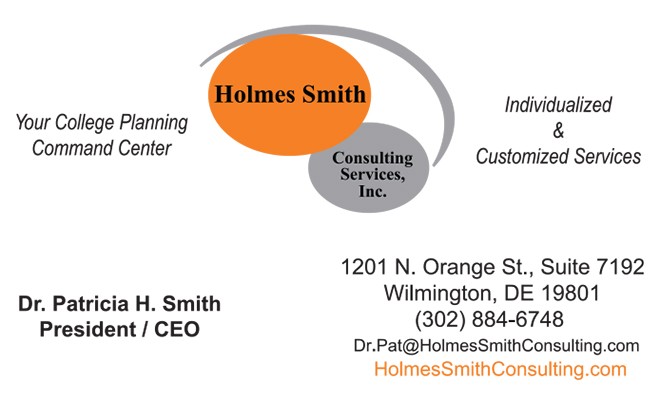Road Trip: Preparing For College Campus Visits
 By Dr. Patricia H. Smith
By Dr. Patricia H. Smith
In the spring of 2011 – our youngest son (at the time a high school junior) announced that he was ready to take the all-important college campus visits. Yep, we were going on a road trip during our sons’ spring break (five days). Our son was excited and my husband and I were trying our best to be supportive of his enthusiasm. However, in the past, our spring breaks consisted of relaxation and resting on the beach. None-the-less, we had to shift gears and prepare to sit in lecture halls, take hikes around campuses, and engage in the college visits journey with our son. Junior year is an excellent time to visit colleges. These visits help to eliminate colleges from the student’s list and create a more customized list of colleges. Senior year college visits are extremely important because they assist with the college decision. These visits should start late summer and early September leading up to the final college selection. High school freshmen and sophomores college visits allow them to get acquainted with the college campuses.
The Purpose of the Visits
Selecting a good college fit is a big decision that will affect your student’s lifelong interests, career and friendships. A college visit will give your student a closer look and insight into the campus environment and culture, student body, social atmosphere, facilities, and academics. Moreover, this is a chance for your student to engage in comparing and evaluating each college that matches his/her requirements and criterions.
Preparing for the Visits
When you are considering making big purchases you gather as much information about the products and services. You know what you want the item to do and the service to provide – in other words, you are determining what is important prior to making the purchase. Some of us go a little deeper in our information gathering on products by determining how they operate. So how does a college campus operate and what makes up the institution? Here are some key components; college students, social life and campus activities, classrooms, lecture halls, academics and professors, campus facilities, and community off campus just to name a few.
Parents’ Preparation
- You are probably encouraged to let your student set up the campus visits, but it takes the entire family to get the most out of the visits. Below are some things parents can do to properly engage in the campus visit process:
- Be well informed about the colleges
- Look into financial aid and Expected Family Contribution (EFC)
- Be supportive, encouraging and reassuring
- Be prepared to make direct contact with the financial aid counselors, the admission counselors and current students attending the college
- Use your experienced ears to listen out for things that your student might miss and shine a different light on what is said and not said
- Don’t embarrass your student with “parent questions.” Prior to the visit, agree as a family what questions you will ask – no surprises – remember that parents should be in the background
- Check to see if there are separate programs for parents (financial aid or Q&A sessions with admissions staff, professors and academic, Office of Disability Support Services staff, and residence and student life counselors)
Students’ Preparation
- Parents don’t forget that the campus visit is the chance for students to learn more about the colleges. Below are a few tips to help students with preparing for their visits:
- Don’t plan to visit when the colleges are closed: Thanksgiving break and Christmas (Winter break), etc.
- Check the colleges’ online calendar for dates of college tours and information sessions
- Get acquainted with your geographical area college admission staff
- Prepare questions that are particularly of interest to you about the college
- If possible, make an appointment to talk briefly with a professor in your field of study/interest
During the Visit
Parents remember to remind your students that no college is perfect. Therefore, encourage them to look for aspects of the college that will meet their needs. Yes, parents should ask questions; especially since you are helping your student with the college process. However, remember not to monopolize the events.
After the Visit
College visits are the best ways to understand the institutions, however, colleges may seem similar, so communicating and evaluating each institution after a visit over pizza will be helpful. This evaluation process will assist with determining the character and distinctiveness of a college and aid in comparing the colleges. Just remember to evaluate the colleges using the same categories – for example: cost/tuition and fees/room and board.
Enjoy the college visits!





